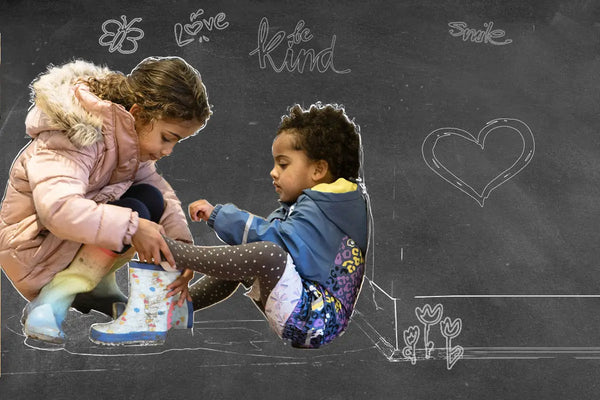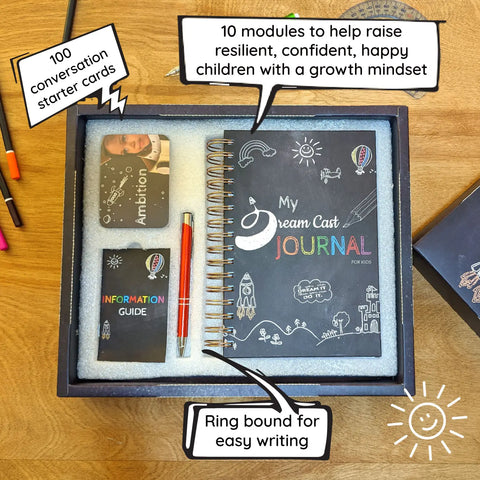Have you ever wondered what empathy for kids means, or how you could teach kids empathy?
Are you concerned that your child isn’t very empathetic? Do they seem unaware, unresponsive, or even indifferent to the feelings and wishes of others? Maybe, like I was, you’re anxious that your child’s empathy levels just aren’t developing, and you’re looking for ways to help.
Why is empathy important?
There were numerous times I observed my oldest interacting with her younger brother and clearly putting her needs ahead of his. Once, they were both at a summer camp. She had forgotten to fill her water bottle and his was full, so she simply swapped the 2 bottles and, subsequently, he had no water for 4 hours on the beach. There were times when I wondered if she didn’t care about him or just didn’t think about how he’d feel - or if there was even a difference.
So, don’t worry, I’ve been there – you’ve come to the right place. I’ll take you through all you need to know about teaching empathy to kids, we’ll discuss how it develops and why it’s important.
We’ll look at how to explain empathy for kids to your child. And, I’ll also share some practical ways to help them become more attuned to how other people may be feeling.
What exactly is empathy for kids? And how do you explain empathy to a child?
You can say that empathy is being able to understand how someone else is feeling, even when you aren't in the same situation. Empathy describes how well we can imagine what someone else is going through, what they may be thinking or feeling.
3 types of empathy, according to psychologist Paul Ekman.
-
Emotional empathy - this is when we actually feel another person’s emotions as though they were our own. Maybe you watch some awful story on the news about a child who's gone missing, and you start to well up.
To explain this to your child, you could say ”Imagine that your friend’s mom has become ill and had to go to hospital. Naturally, your friend is very upset and worried. You might start to imagine how you would feel if that was your mom.
Although your mom is perfectly well, you could also start to feel upset and worried. This is a form of empathy where you begin to have the same feelings as your friend even though you are not in the same situation as them.” -
Cognitive empathy for kids - With this form of empathy, we can recognize another person’s perspective, but we don’t feel their emotions and instead remain reasonably detached. i.e. when you dont understand how another person is feeling.
An example could be “If your friend lost their favorite toy, you might understand that they are upset because you know how much your favorite toy means to you. This is a type of empathy. But although you realize that your friend is upset and why, you don’t feel upset yourself, because it wasn’t your toy.” -
Compassionate empathy for kids - This is where we not only understand what someone else is going through and experience many of the same emotions, but we are also compelled to help in any way we can. Whether it’s buying a meal for a homeless person or calling a friend who posted a sad message on Facebook.
An example could be “What would you do if you saw a child at school who was upset because they had nobody to play with?
Perhaps you’ve been in that situation yourself and know how horrible it feels to be alone.
You might understand what they are feeling and could even start to feel sad yourself, even though you are with your friends. This feeling of sadness might make you go over and ask that child if they would like to come and play with you and your friends. This is empathy in action!
Read More: Empathy for kids are at different maturity levels
-----------------------
-----------------------
Dream Cast Kids Journal helps teach empathy.
We have included writing prompt to help reinforce the concepts such as empathy and kindness, gratitude and more in both the Dream Cast Journal and Dream Cast Conversation Starter Cards tying the learning experience together perfectly.











